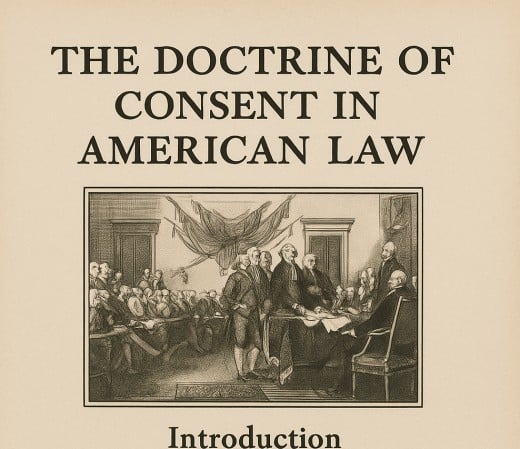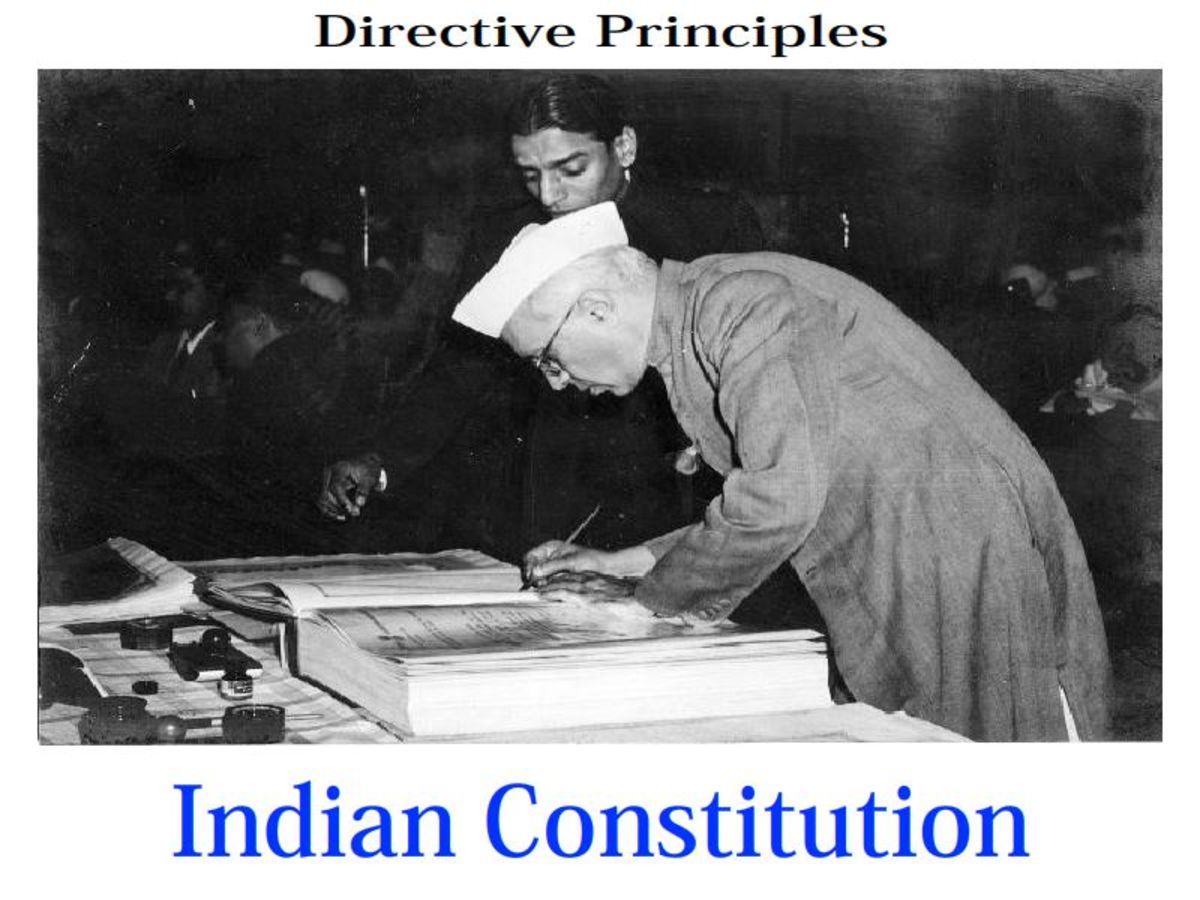The Doctrine of Consent in American Law

Introduction
One of the most powerful but often overlooked principles in American law is the doctrine of consent. At its core, the idea is simple: government power, court authority, and contractual obligations all rest upon the consent of the governed or the agreement of the parties. Without consent, legal systems lose legitimacy. Yet in practice, this principle has been stretched, obscured, or bypassed, leaving many unaware of its importance.
Consent as the Foundation of Government
The Declaration of Independence declared that governments “derive their just powers from the consent of the governed.” This was not a poetic phrase but a legal cornerstone. The American constitutional system was built on the premise that authority flows upward from the people. The people consented, through constitutions, to delegate limited powers to their governments.
The original design meant:
-
Consent is voluntary – no person can be forced into obligations without knowledge and agreement.
-
Consent is limited – government cannot claim powers never granted to it.
-
Consent can be withdrawn – when governments act beyond their granted powers, they lose legitimacy.
Consent in Contracts and Private Law
In private law, consent is equally vital. A contract is only valid when both parties knowingly and voluntarily agree to its terms. Courts will strike down contracts signed under duress, fraud, or mistake because true consent was missing.
This principle extends to many areas:
-
Property transactions – ownership cannot be transferred without consent.
-
Marriage – unions are not binding without voluntary agreement.
-
Trusts – beneficiaries and trustees act according to clearly expressed terms, based on consent of the settlor.
In all cases, the law respects the individual’s right to choose obligations rather than be forced into them.
Consent in Courts and Jurisdiction
Consent also plays a decisive role in courts. Jurisdiction—the court’s authority to hear a case—often depends on the consent of the parties. For example:
-
Civil lawsuits generally require one party to bring another voluntarily before the court.
-
Arbitration agreements are binding only if the parties consented in advance.
-
Even criminal prosecutions operate on the presumption that individuals have consented, through citizenship, to abide by the laws of their jurisdiction.
If consent is withdrawn, or if it was never validly given, jurisdiction can be challenged. Courts recognize this in doctrines such as subject matter jurisdiction and personal jurisdiction, which cannot be created by force but must rest on legal grounds tied to consent or territorial authority.
The Problem of Presumed Consent
Over time, the doctrine of consent has been diluted by presumptions. Governments and institutions often operate on the assumption that silence equals agreement. Examples include:
-
Licensing systems where failure to object is treated as acceptance of regulation.
-
Taxation justified by presumed consent through residence or citizenship.
-
Court proceedings where failing to speak or file timely objections is treated as consent to jurisdiction.
This creates a problem: individuals are bound not by explicit agreement but by legal fictions of presumed consent. This erodes the original constitutional principle that consent must be clear, informed, and voluntary.
The Core Issue
The core issue is that modern law frequently treats the absence of objection as consent. This is a reversal of the original American principle that obligations arise only from deliberate agreement. As a result, individuals can find themselves subject to laws, regulations, or judgments that they never knowingly accepted.
Moving Forward
To restore the integrity of the doctrine of consent, individuals and communities must:
-
Insist on disclosure – true consent requires full knowledge of terms and consequences.
-
Withdraw silent presumptions – make clear that silence does not equal agreement.
-
Reassert voluntary obligations – embrace contracts and agreements that are openly chosen, while resisting those imposed without genuine consent.
In legal disputes, this means raising objections on the record, challenging jurisdiction where appropriate, and demanding proof of valid consent before obligations are enforced.
Conclusion
The doctrine of consent is not a technicality—it is the bedrock of American law. From government authority to private contracts, from court jurisdiction to taxation, the entire system rests on agreement. When consent is respected, liberty thrives and justice is preserved. When it is presumed or coerced, the balance shifts toward control and subjugation.
Reclaiming the principle of consent is essential to restoring constitutional government and protecting individual rights. It reminds us that law is not simply about force, but about the willing agreement of free people.
This content reflects the personal opinions of the author. It is accurate and true to the best of the author’s knowledge and should not be substituted for impartial fact or advice in legal, political, or personal matters.
© 2025 Joe Lustica








